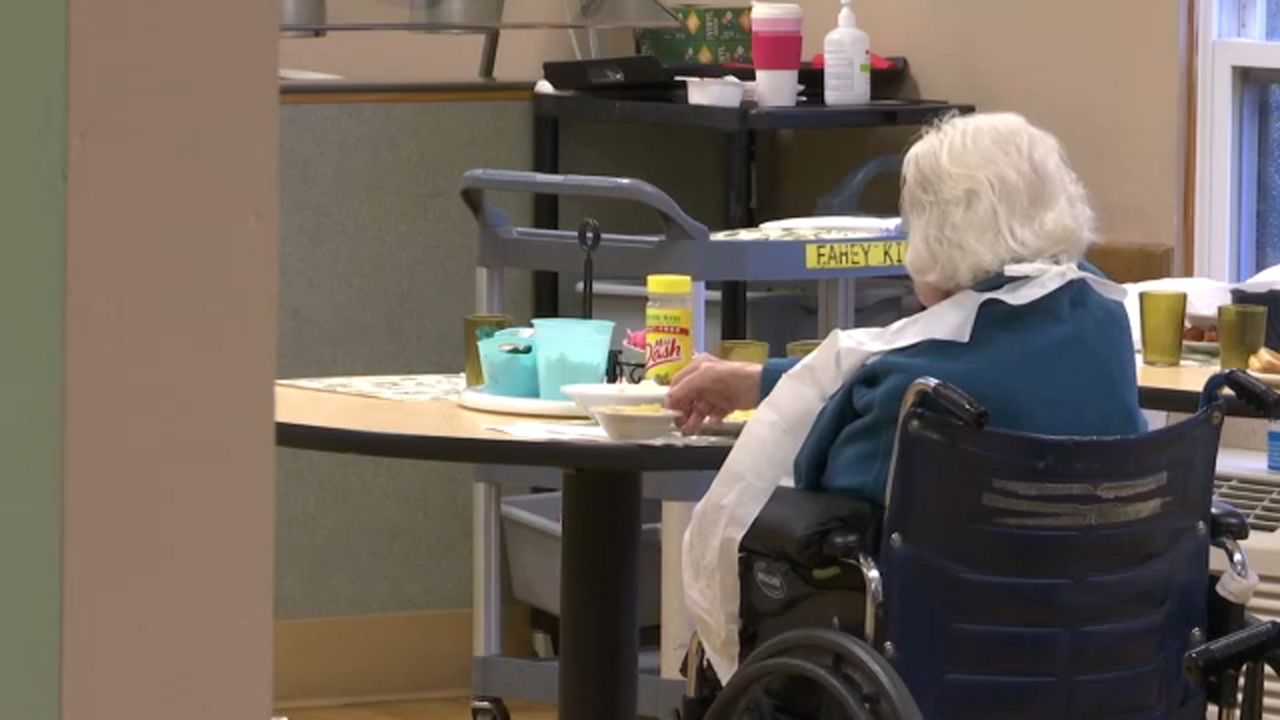Last summer, state lawmakers, alarmed at the growing death toll in nursing homes and assisted living facilities, posed a series of questions to Gov. Andrew Cuomo's administration about immunity for the facilities, an accurate death toll and other policies put in place during the pandemic.
On Wednesday, more than six months later, the Department of Health responded.
The state Senate on Wednesday evening released a 16-page Department of Health document responding to a series of questions lawmakers posed in August last year to Cuomo's administration surrounding deaths in nursing homes and long-term care facilities in New York.
The document released by lawmakers contained an updated figure on the number of nursing home, long-term care facility and adult care facility residents who have died or presumed to have died of COVID-19 during the pandemic: 15,049. The number includes people who died inside the facilities or elsewhere.
The document's release came after lawmakers met earlier in the afternoon with Cuomo administration officials about the issue.
"As we release this information publicly, we will be reviewing the responses and we look forward to continuing to follow up with the Administration, including at the upcoming budget hearing," said Sens. Rachel May, Gustavo Rivera and James Skoufis in a joint statement. "We had a very productive meeting tonight with the administration and look forward to continuing this dialogue."
The updated number does not satisfy the terms of a lawsuit won by the Empire Center, a right-leaning think tank, that sought more detailed information on facilities and dates of deaths during the pandemic.
The answers to the questions posed by lawmakers comes ahead of what is expected to be a contentious public hearing featuring lawmakers from both parties and Health Commissioner Howard Zucker over the handling of nursing homes during the pandemic.
State Attorney General Letitia James last month released a report that found New York under counted the death toll of residents by not counting those who have died outside of the facilities, but may have contracted COVID inside.
Republican lawmakers had pushed to be included in the meeting and have called for Zucker's dismissal.
"To be clear, we will certainly have more questions as we review this information," the lawmakers said. "While some of our Republican colleagues in the Legislature continue to shamefully play politics with the tragedy that unfolded in our state's nursing homes, we are, instead, committed to getting answers, holding stakeholders accountable, and advancing legislative solutions in a sober, thoughtful manner. That's exactly what we are doing and what we will continue to do."
The document itself includes similar arguments made by Cuomo and administration officials.
On controversies like immunity for nursing homes, the Department of Health states, "The intent was to allow volunteers, facilities and providers to make the right medical decisions, rather than having to be influenced by legal implications. Immunity is available if the care was pursuant to a COVID-19 emergency rule, impacted by decisions or actions in response to the COVID-19 outbreak, and the care was delivered in good faith, but immunity is not available if harm was caused by an act or omission constituting criminal misconduct, gross negligence, recklessness or intentional infliction of harm."
Similarly, the document defended the March 25 guidance issued by the state that required nursing homes to accept COVID positive residents discharged from hospitals in language Cuomo has used: "The March 25th advisory memo was not a directive to nursing homes to take residents for whom they could not provide care, and as shown by the data, admissions were clearly not a factor in introducing COVID for at least 98% of nursing home facilities that had admissions between March 25th and May 8th."
And for counting deaths during the crisis, the Department of Health defended its methodology.
"Some nursing homes have reported certain fatalities for residents who died outside their facility, after those individuals were no longer under their care, where the facility suspected - but lacked confirmation - that the cause of death was COVID related," the documented stated. "During data verification attempts by DOH, nursing homes have indicated that these reports are unreliable because they speculated from incomplete medical information, and could not confirm that information with the facility at which the patient died."
Read the full document here:



